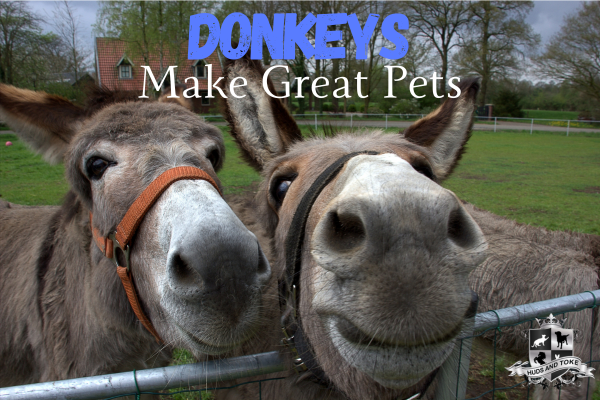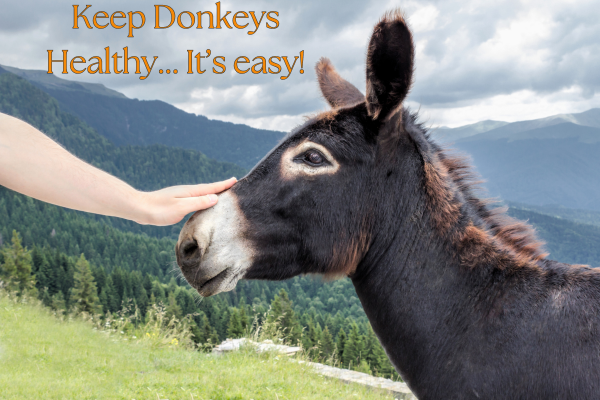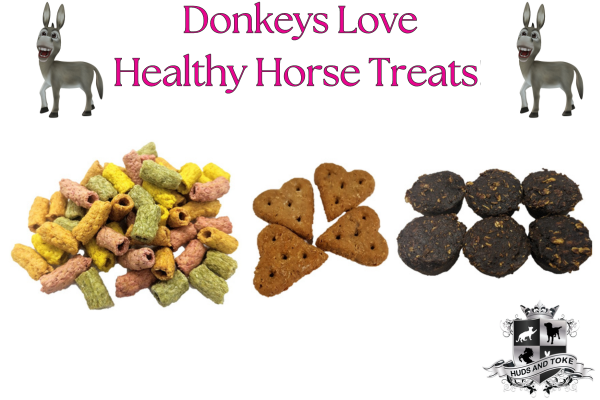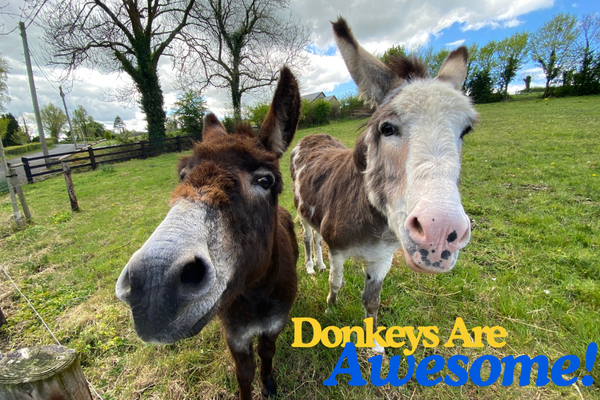Posted by Russell Gibbons on 3rd Jun 2024
DONKEYS MAKE GREAT PETS.
Donkeys are a wonderful animal that make a super entertaining pet.
Although they are similar to horses, and are actually part of the Equus genus, they have some very noticeable differences to horses.
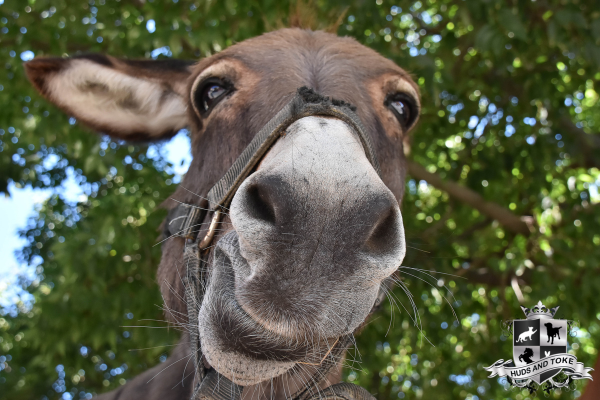
As such, if you have them as a pet as well as horses, it’s important to make sure you treat them differently especially when it comes to nutrition……
We’ll explore that soon. But first, lets have a brief look at their history.
Donkeys have a fascinating evolutionary history that traces back to ancient times.
Evolution and Domestication of Donkeys - Origins in Africa
Donkeys, also known as asses, are descendants of the African wild ass ( Equus africanus). Their evolutionary journey began in Africa, where their ancestors roamed the arid and semi-arid regions.
Two primary subspecies of the African wild ass are:
- Nubian Wild Ass (Equus africanus africanus): Native to north-eastern Africa, particularly in the regions that are now Sudan and Eritrea.
- Somali Wild Ass (Equus africanus somaliensis): Found in the Horn of Africa, particularly in Somalia and surrounding areas.
These animals were well-adapted to the harsh desert environments, which shaped their hardy nature and efficient metabolism.
Domestication
The domestication of donkeys is believed to have occurred around 5000-4000 BCE in Northeast Africa, particularly in regions that are part of modern-day Egypt and Sudan.
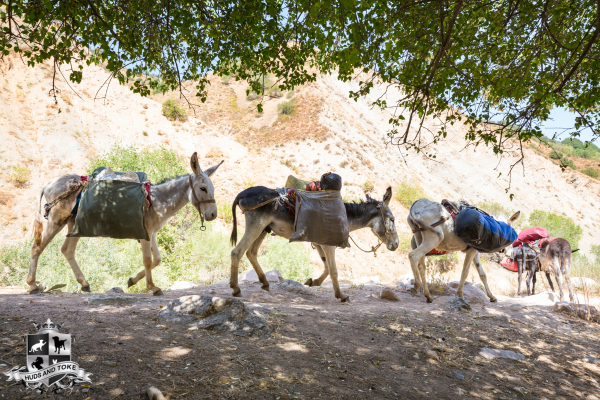
Early humans recognized the donkey's potential as a pack animal, capable of carrying loads over long distances and through difficult terrains where other domesticated animals might struggle.
Key Characteristics Shaped by Evolution
Adaptations to Arid Environments
- Efficient Water Use: Donkeys can tolerate dehydration better than many other animals, losing up to 30% of their body weight in water without severe health consequences. They are also able to rehydrate quickly once water is available.
- Dietary Flexibility: Their ability to digest high-fibre, low-quality forage allows them to survive in environments with sparse vegetation.
Physical Attributes
- Sturdy Build: Donkeys have strong, muscular bodies adapted to carrying heavy loads.
- Hooves and Legs: Their hooves are hard and sturdy, suitable for rocky and uneven terrains, and their legs are powerful, enabling them to cover long distances.
- Ears: Have long, large ears that are highly sensitive and can move independently. Their ears are a key adaptation for detecting sounds in arid environments.
Behaviour and Temperament
- Social Behaviour: More independent and less flighty than horses. They can be very stubborn and are known for their cautious nature. They form strong bonds with other donkeys and animals.
- Communication: Communicate with loud brays (also known as hee-haws) and a variety of other vocalizations.
- Intelligence and Problem-Solving: Considered
very intelligent with excellent problem-solving skills. Their stubbornness
often reflects their careful assessment of situations. Hence we see them as being less "flighty" than horses and more measured.
- Horses, on the other hand, whilst also intelligent, tend to react more quickly and less analytically than donkeys.
These Characteristics help make donkeys are really awesome pet.
They are hardy, intelligent, measured in reactions, and bond really well to both other animals and their humans….
However, they are not as well known for their ability to provide a rider with an enjoyable experience…. So stick to your pony for riding, and cuddles can be for the Donkey!
But how do we look after our Donkey Nutritionally?
Feeding Your Pet Donkey: What You Need to Know
Donkeys are remarkable animals with unique nutritional needs.
As a pet owner, providing the right feed for your donkey is essential for its health and well-being.
Lets explore the types of feed suitable for donkeys and explain why each component is important.
1. Forage: The Foundation of a Donkey's Diet
Forage should make up the bulk of a donkey's diet (about 70-80%). It provides the necessary fibre that aids in digestion and prevents digestive issues like colic.
Unlike horses, donkeys thrive on high-fibre, low-sugar, low protein forage, due to their efficient digestive systems.
High-quality hay is essential to prevent obesity and related health problems.
Be sure to provide a lot more hay than you would your horse..... Remember, Donkey's are more efficient at digestion.... which also means they will put on weight easily if fed hi protein feeds like grain.
2. Limited Grazing
Why Limit Grazing? Donkeys are prone to gaining weight easily, and unrestricted access to lush, green pastures can lead to obesity and laminitis (a painful hoof condition). Controlled grazing, using a grazing muzzle or strip grazing techniques, helps manage their intake of fresh grass.
Nutritional Benefits: While fresh pasture provides vitamins and minerals, it's crucial to monitor the amount. Small, controlled amounts can contribute to their nutritional needs without the risk of overconsumption.
3. Supplements: Balancing the Diet
Common Supplements:
- Salt and Mineral Blocks: Ensure that donkeys have access to a salt block and a mineral block designed for equines.
- Vitamin and Mineral Supplements: In areas where forage might lack certain nutrients, these can help fill the gaps.
While a well-managed forage-based diet covers most of a donkey's nutritional needs, supplements ensure they get essential minerals like selenium, which might be deficient in local forage.
Salt blocks help prevent deficiencies in sodium and chloride, crucial for maintaining hydration and muscle function.
4. Concentrates: Use Sparingly
Types of Concentrates:
- Grain Mixes: Formulated for equines, but should be low in sugar and starch.
- Pelleted Feeds: Specifically designed for donkeys, often with added fibre.
Concentrates are not typically necessary for most pet donkeys, especially if they have access to good quality forage.
Overfeeding concentrates can lead to obesity and metabolic issues. If needed, they should be fed in minimal amounts and tailored to the donkey’s specific needs.... So be sure to speak to your vet about this.
5. Fresh Water: Always Available
Why It Matters: Hydration is crucial for all animals, including donkeys.
Although they are very efficient at conserving water and can go for long periods without; it’s always better to ensure they have access to clean, fresh water at all times when they are your pet.
Dehydration can lead to serious health issues, including colic and kidney problems.
6. Treats: The Occasional Indulgence
Safe Treats:
- Carrots
- Apples (in small amounts)
- Specialty Donkey Treats: Available at pet stores, produce stores, and saddlery’s.
Horse Treats are one of the best ways for training and bonding with your Donkey. They respond really well to these products however be sure to give them Horse Treats which are ideally lower in sugar and made specifically for Horses/Donkeys.
Buying Sweets like Liquorice and Peppermints as Donkey Treats from the store tend to be very high in sugar and lack other important ingredients….. So stick to the Horse Training Treats which are made for the equine family…. Not for the humans!
Feeding your pet donkey requires a balanced approach, focusing on high-fibre forage, controlled grazing, and minimal concentrates.
Supplements ensure they receive all necessary vitamins and minerals, while fresh water and occasional Horse Treats or Donkey Treats keep them healthy and happy.
By understanding and meeting their specific dietary needs, you can ensure your donkey leads a healthy, fun and fulfilling life.
So go and enjoy your time with your Donkey.... They have wonderful personalities and can fill you with joy by watching their antics and their interactions with you as their human friend!
The team at Huds and Toke are always interested in your adventures with your pets regardless of what they are..... Our products are As Good As It Gets and we love seeing photos of you with your pets.
Please include us in our socials.
Thank-you for your support and all the best from the team at Huds and Toke.
@Hudsandtoke
#Hudsandtokefamily



